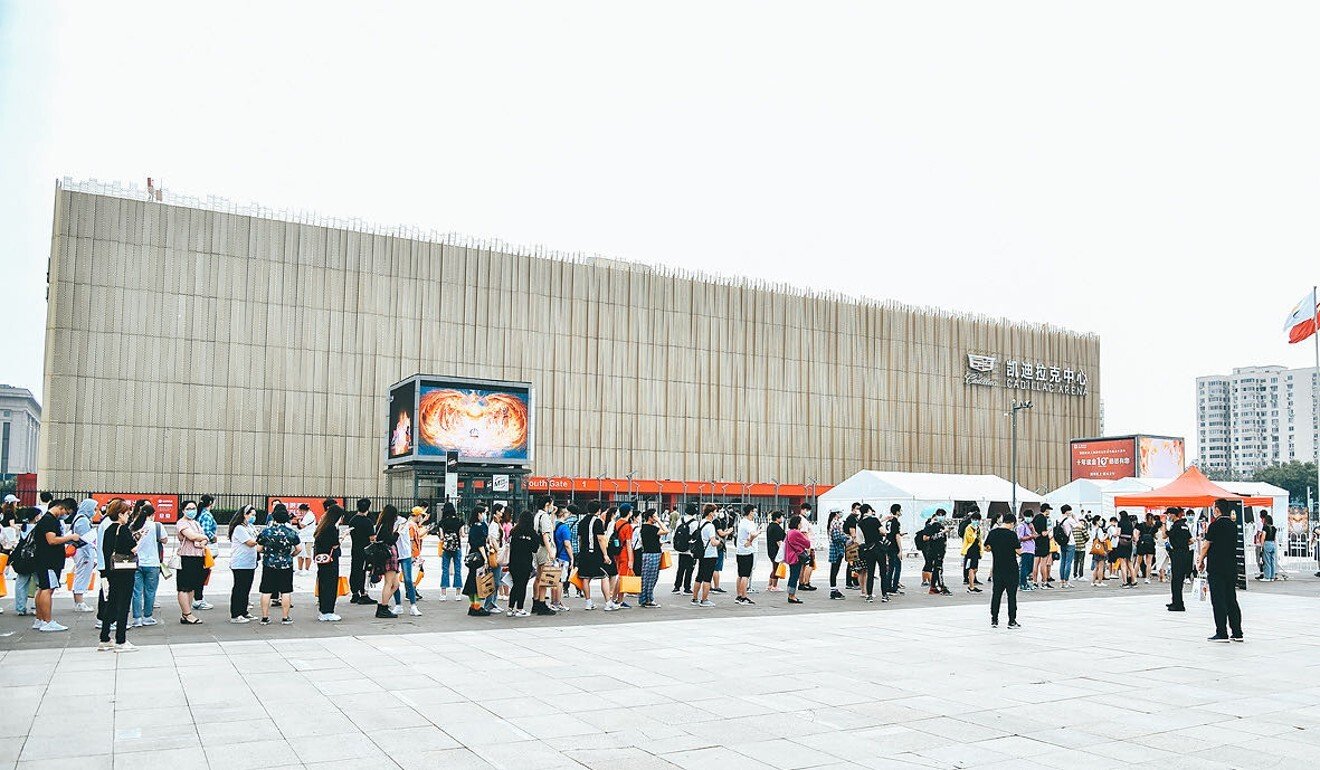
Honour of Kings Champion Cup gets first e-sports live audience in China since the start of the Covid-19 pandemic
- Honour of Kings World Champion Cup 2020 only released 2,000 tickets for a stadium with a capacity of 19,000
- It was the was the first major e-sports event to get a live audience in China this year while most international events still face delays
After going more than half a year without attending live games, e-sports fans in China were finally able to show up in person to the finals of one of the country's most popular tournaments.

Thousands of people showed up to Wukesong Arena to see Dynamite Gaming defeat Turnso Gaming. Beijing held the championship and two e-sports conferences over the weekend as part of a government initiative to boost the city’s e-sports industry.
Beijing was taking strong precautions to guard against the Covid-19 pandemic for the event. The city faced a second wave of Covid-19 cases in June, which resulted in 335 new cases at the time.
Part of these controls meant only letting Honour of Kings players purchase a ticket if they had a level 30 account – the highest achievable in the game. They also had to register with their real names and pass a screening from Beijing’s health code system, which is meant to measure someone’s level of risk of having contracted the virus. Once they showed up, attendees had to present a national ID card and pass a temperature check to be allowed into the stadium.
China wants to keep health codes after the pandemic but users aren’t so sure
KPL had previously moved matches online during the coronavirus, which is how it initially planned to handle the Honour of Kings championship. But with the virus now largely under control in many areas of China, Zhang said the organisation decided to allow a limited live audience in response to the government’s call for boosting consumer confidence in Beijing.

